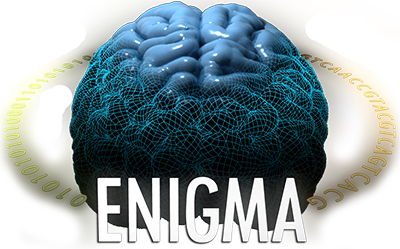
The ENIGMA Chronic Pain Working Group aims to bring together chronic pain research groups in order to mutualize neuroimaging and genetic databases towards large-scale studies on brain structure, function, neurophysiology and molecular underpinnings of chronic pain. We aim to identify brain regions and networks involved in the neurobiology of chronic pain and investigate how these relate to genomic background. Through large-scale analyses of neuroimaging data we will seek to define heritable sub-phenotypes in chronic pain disorders and probe genomic variation in order to dissect the complex genetic architecture of these disorders. In collaboration with other ENIGMA working groups we aim to understand the role and impacts of comorbid mental health disorders, including but not limited to, anxiety disorders, depressive disorders, posttraumatic stress disorder, or traumatic brain injury.
By joining forces with investigators around the world, sharing expertise and resources in large-scale collaborative efforts we hope to be able to elucidate the aetiology of chronic pain disorders and identify targets for the development of new interventions for chronic pain.
The working group aims to establish a platform for large-scale collaborative efforts aiming to understand the aetiology of and identify the brain phenotypes associated with chronic pain disorders. The primary aim of this group is to identify imaging markers that robustly discriminate chronic pain disorders from pain-free, healthy individuals across different chronic pain disorders, using planned, standardized image processing and statistical analysis protocols. Projects targeting specific chronic pain disorders will be welcomed as secondary proposals.
The only prerequisite is that each participating group must follow the ENIGMA Memorandum Of Understanding (MOU) guidelines.
To get started, you should run your dataset through the current ENIGMA Imaging Protocols (found here), and we can help you with that. Most questions you may have regarding ENIGMA, data sharing etc. are probably answered here. If you have any additional question, please feel free to reach out to the Working Group chairs (details below).
Coordinators: Yann Quidé and Sylvia Gustin, NeuroRecovery Research Hub, School of Psychology, UNSW Sydney, Australia; Centre for Pain IMPACT, Neuroscience Research Australia, Sydney, Australia
Our call for participation is open and we look forward to welcoming new partners! Please join us if you have existing imaging data (T1-weighted, diffusion-weighted, functional MRI, resting-state EEG) on chronic pain disorders, patients and controls,or if you are planning to start such a study. Interested cohorts may complete our short data query polls for MRI and/or EEG.
For more information, please contact Yann Quidé at y.quide@unsw.edu.au and Sylvia Gustin at s.gustin@unsw.edu.au.


